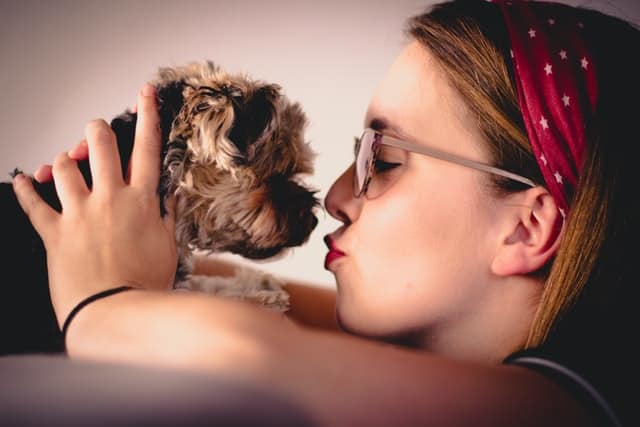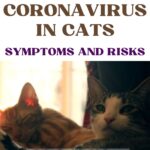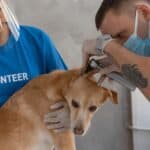
Kisses to the dog give us comfort. In this tough period of social isolation, trying to reduce stress through the love and company of your best friend can be of great help.
Dog kisses are capable of wiping out almost any worry. Today, science has amply demonstrated that pets, especially cats and dogs, can reduce stress, anxiety and depression.
Their companionship can relieve loneliness, encourage exercise, promote fun, and even improve cardiovascular health. But how to deal with dog kisses in the time of the coronavirus?
Recently, concerns have been raised that pets may play a role in the spread of COVID-19.
Can dog kisses infect COVID-19?
According to the World Organization for Animal Health (OIE), the current spread of COVID-19 is the result of human-to-human transmission. The Organization notes that, to date, there is no evidence that companion animals can transmit the disease.
Therefore, there is no justification for taking measures that could compromise the welfare of companion animals. Current evidence suggests COVID-19 is present among wild animals, but this is yet to be confirmed.
Did a dog test positive or not?
Yes, on March 1 it was reported that a Hong Kong Pomeranian tested positive for COVID-19 and other tests. The animal was infected after its owners fell ill with the coronavirus.
Samples were taken from the dog’s nose, mouth and rectum and analyzed his faeces. Only the oral and nasal samples tested positive for coronavirus , i.e. there were traces of the virus.
Doctors insist that this doesn’t necessarily mean he’s infected. Other samples taken two days later were also positive, although the animal showed no symptoms . The dog is now in quarantine.
It should also be noted that the dog showed no clinical signs of the disease. A blood test was also performed, which came back negative, indicating that there are no measurable amounts of antibodies in the blood at this stage.
The WHO states that “there is no evidence that dogs play a role in the spread of this human disease or that they get sick.”
On the “weak positive” of the Hong Kong dog, the World Small Animal Veterinary Association (WSAVA) states that “a low amount of COVID-19 viral RNA was detected in the samples” and it is unknown whether these particles are contagious or do not have the ability to spread.
Currently, there is no evidence that pets such as cats and dogs have infected humans with COVID-19. Transmission of the virus occurs only from human to human.
Tips for limiting contact during isolation
Only, in the event that the owner is infected or risks becoming infected with COVID-19, the WHO advises to avoid close contact with their pets. Therefore, the Chinese authorities have warned infected people to avoid kissing their pets . In these cases, another family member should take care of the animals.
If the patient is forced to take care of their pet, they should maintain good hygiene practices and, if possible, wear a mask. You can find more information on pet health during the pandemic on their website.
The Directorate General for Animal Rights also reminds that it is allowed during the quarantine period:
- Take short walks, just to cover physiological needs .
- Keep the dog on a leash from the first moment it is taken for a walk.
- Always avoid contact with other dogs or people.
- Use water bottles with detergent to clean up urine afterwards and use bags to collect stool
Without a doubt, we must add the recommendation to wash your hands after touching animals, as saliva can spread other germs.
Are dog kisses not recommended?
According to the OIE, there is no reason to panic and think that pets can be potential victims or carriers of the coronavirus. It should be made clear that there is no evidence that they can acquire or transmit infection .
The COVID-19 virus appears to only spread among people and is therefore unlikely to spread between dogs or cats. Don’t be afraid to enjoy the company of your pets , or avoid dog kisses in the time of the coronavirus.
Many types of viruses, including the common cold, cannot pass and spread between pets and people.
Pets have different cell receptors than humans do, which can prevent some human-transmitted viruses from attaching to their cells and causing an infection. Viruses are generally species specific, as is the case with canine coronavirus.






